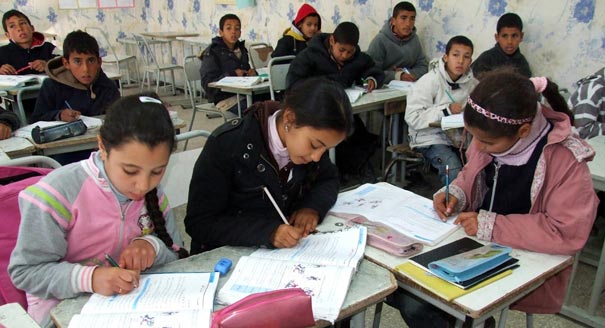The youth of the Arab world have driven much of the popular upheaval that has overtaken the region in the last year. Calling for fundamental political and economic change, they seek to remake their societies into more open, global players. But if that grassroots momentum is to be solidified, real societal reform must take place.
In burgeoning democracies such as Tunisia, Egypt, and Libya, schools can be change agents and effective elements in the development of long-lasting democratic skills and values such as freedom, equality, social justice, and respect for diversity and basic human rights. With more than 40 percent of people in the Arab world under the age of eighteen, schools are key social and political actors that can strongly impact the process of democratization.
A growing body of research has shown that a positive school climate is imperative to ensuring progress on this front. The character and quality of school life, which reflects values, goals, organizational structure, interpersonal relationships, and teaching and learning practices, can either promote or hinder a student’s education and future success.
Unfortunately, in much of the Arab world school climates are generally negative. Indexes that combine data from three international studies and measure schools’ safety, teaching, learning, and institutional environments in fourteen Arab countries paint a picture that is far from rosy. Many students do not feel safe physically, socially, and emotionally in schools. Substantial percentages of teachers entered their profession with deficient academic preparation and pre-service training and do not receive adequate and appropriate professional development during service. Reliance on rote memorization of facts, student and teacher absenteeism, classroom overcrowding, and limited resources all contribute to the problem as well.
Much needs to be done. First and foremost, decisionmakers must find the political will to endorse serious comprehensive education reforms that target the entire school culture. All Arab countries should improve the status and qualifications of their teachers, and establish systems of good governance at both the local and central levels along with transparency and public accountability. Absent a good education environment, there is little room for the Arab world’s youth to turn into responsible citizens who can consolidate and stimulate social transformation to bring about more prosperous and free societies.
